Bangladesh top court cuts back job quotas after deadly unrest
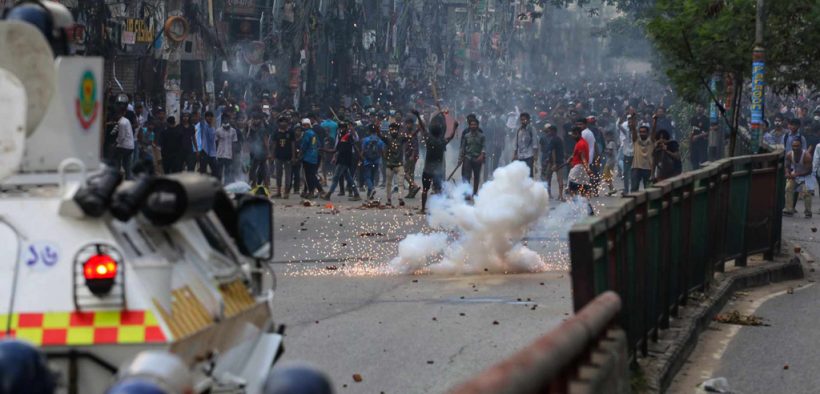
Bangladesh’s top court has scrapped most of the quotas on government jobs that had sparked violent clashes across the country that have killed more than 100 people.
A third of public sector jobs had been reserved for the relatives of veterans from the country’s war for independence from Pakistan in 1971.
But now the court has ruled just 5% of the roles can be reserved for veterans relatives.
The government has not yet responded to the ruling. A spokesman for one of the student groups was quoted by AFP as saying the protests would continue.
Streets in the capital Dhaka are deserted as a second day of curfew is in force, but sporadic clashes have been reported in some areas.
An armoured vehicle was stationed outside the Supreme Court building and soldiers are still patrolling the streets of the capital, Reuters reports.
Some of the protest leaders have reportedly been arrested. Others are demanding justice for those killed in the clashes.
About 115 people are known to have died but local media report a much higher casualty figure. At least 50 people were killed on Friday alone.
The Supreme Court ruling orders that 93% of public sector jobs should be recruited on merit, leaving 5% for the family members of the veterans of the country’s independence war.
A remaining 2% is reserved for people from ethnic minorities or with disabilities.
Scrapped in 2018 by Prime Minister Sheikh Hasina’s government, the quota system was reinstated by a lower court last month.
That decision sparked huge protests across the country, with students saying the quotas were discriminatory.
The government responded with a harsh crackdown, including a curfew and a communications blackout.
Protest coordinators say police and the student wing of the governing Awami League – known as the Bangladesh Chhatra League – have been using brutal force against peaceful demonstrators. The government denies this.
Bangladesh is one of the fastest growing economies in the world, but that growth has not translated into jobs for university graduates.
Estimates suggest that around 18 million young Bangladeshis are looking for jobs. University graduates face higher rates of unemployment than their less-educated peers.
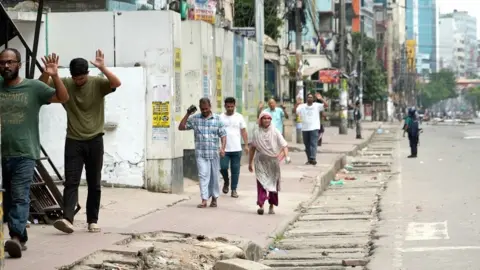
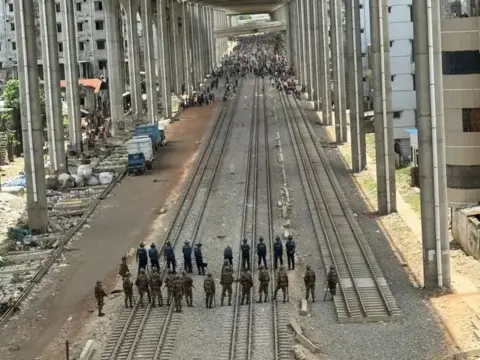

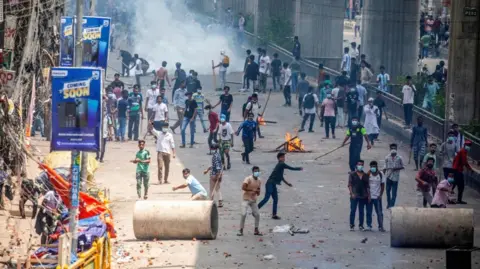 EPA
EPA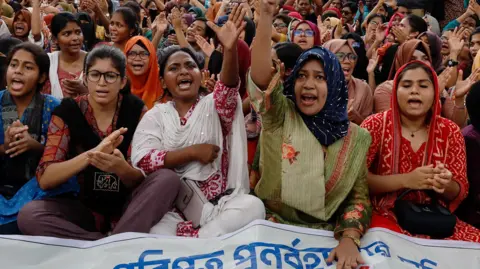 Reuters
Reuters
Massive protests
The demonstrations in the past week, led largely by university students, were the largest since Prime Minister Sheikh Hasina was reelected for a fourth successive term this year in a vote without any real opposition.
At least 105 people died in the unrest.
Critics say the quotas benefit families loyal to Hasina, 76, who has ruled the country since 2009.
Rights groups accuse Hasina’s government of misusing state institutions to consolidate its hold on power and suppress all dissent, including by the extrajudicial killing of opposition activists.
Anger at the quotas is especially rife among young graduates, who are facing an acute jobs crisis.
Soldiers are currently patrolling cities across Bangladesh, particularly the capital, Dhaka, following the protests, which saw deadly clashes between security forces and demonstrators.
AFP, AP, DW, BBC











